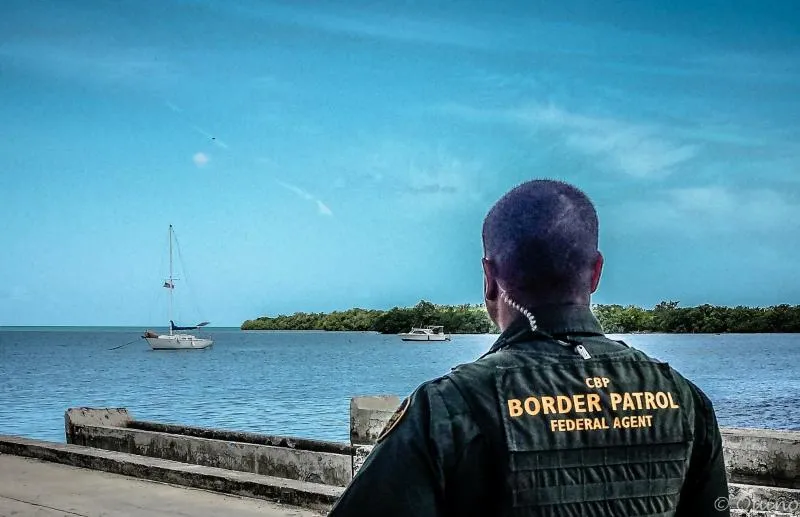AGUADILLA, Puerto Rico – The last week of July is the main summer vacation holiday in which most residents of Puerto Rico take time off to visit it beautiful beaches. For the agents of the Ramey Border Patrol Sector it has been busy responding throughout the island.
“Our agents work diligently to assist our federal and Operation Stonegarden partners,” stated Ramiro Cerrillo, Chief Patrol Agent for Ramey Sector in Aguadilla.

work with Operation Stonegarden
& federal partners to protect the island.
Photo: BPA J. Quinones
On the early morning hours of Jul. 26, a Border Patrol agent detected a suspect vessel attempting to reach the west coast, consequently requesting assistance to intercept from the Puerto Rico Police Department Joint Forces for Rapid Action (FURA, for its Spanish acronym), an Operation Stonegarden participant. The FURA maritime unit responded and intercepted the vessel approximately four nautical miles west of Aguada, PR, finding two aliens from the Dominican Republic onboard.
The vessel, a 19’ in length, fiberglass with a 130-HP outboard engine, is registered in Puerto Rico, had 6 fuel tanks onboard. Agents arrested and transported both illegal aliens to the Ramey Border Patrol Station for further investigation and processing.
On Jul. 25, Border Patrol Agents supported a Homeland Security Investigations (HSI) and Puerto Rico Police Department operation into several housing projects in the city of Mayaguez, Puerto Rico that resulted in the high profile arrest of a known narcotics dealer. Along with the arrest, law enforcement seized numerous weapons, ammunition and 143 decks of heroin. HSI leads prosecution and investigation.
Near noon on Jul.24, the United States Coast Guard (USCG) Sector San Juan requested Border Patrol assistance with three men they rescued off the coast of Cataño, when their jet ski became disabled.
Border Patrol Agents interviewed the individuals determining that an alien from the Dominican Republic was illegally present in the island. The remaining two subjects are United States Legal Permanent Residents.
The Operation Stonegarden Grant Program (OPSG) is designed to enhance cooperation and coordination from the U.S. Border Patrol with local, tribal, territorial, state and federal law enforcement agencies in a joint mission to secure the border.
OPSG funds were allocated based on risk-based prioritization using a CBP Border Patrol Sector-specific border risk methodology. Factors considered included, but were not limited to, threat, vulnerability, miles of border, and other border-specific “law enforcement intelligence,” as well as feasibility of Operation Orders to designated localities within the United States Border States and its territories.
Follow us on Twitter: @CBPCaribbean.


